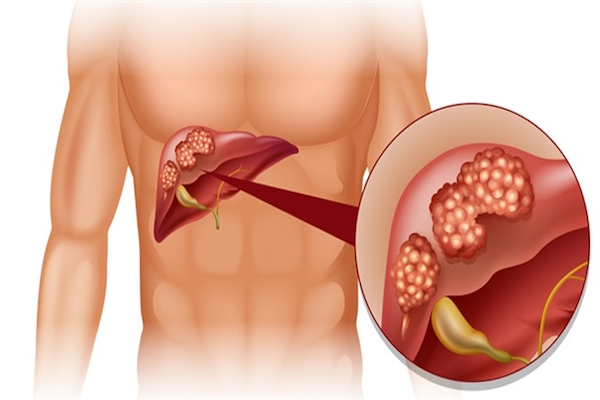Abstract
Liver cancer is considered as one of the most common cancers in the world, so that it is ranked fifth in males and sixth in females in the world causing high annual costs to patients, the health system and society (Ferlay et al., 2015). The worldwide mortality rate of this disease is rising annually. This disease also has a very high fatality, so that 88% of patients in USA (Miller et al., 2016) and 90% of patients in China (Zeng et al., 2015) die of this disease in the first 5 years of its diagnosis. Therefore, it is essential to identify factors which protect against this disease. The protective effects of Statins against the cardiovascular diseases, stroke and heart attack has been proven (Tobert, 1996). Recent studies have found that Statins can also have protective effects against the cancers (Yi, Song, Wan, Chen, & Cheng, 2017). Several meta-analysis studies have explored the relationship between Statin receiving and the risk of developing liver cancer by application of randomized clinical trials, and found that the use of Statins significantly reduces the risk of liver cancer.
Dear Editor-in-Chief
Liver cancer is considered as one of the most common cancers in the world, so that it is ranked fifth in males and sixth in females in the world causing high annual costs to patients, the health system and society Ferlay et al., 2015. The worldwide mortality rate of this disease is rising annually. This disease also has a very high fatality, so that 88% of patients in USA Miller et al., 2016 and 90% of patients in China Zeng et al., 2015 die of this disease in the first 5 years of its diagnosis. Therefore, it is essential to identify factors which protect against this disease. The protective effects of Statins against the cardiovascular diseases, stroke and heart attack has been proven Tobert, 1996. Recent studies have found that Statins can also have protective effects against the cancers Yi, Song, Wan, Chen, & Cheng, 2017. Several meta-analysis studies have explored the relationship between Statin receiving and the risk of developing liver cancer by application of randomized clinical trials, and found that the use of Statins significantly reduces the risk of liver cancer.
The Relative Risk(RR) of liver cancer in Statin-treatment group compared with the control group was equal to RR=0.63 (Confidence interval (CI) of 95%, 0.52-0.76) in research by Singh et al. Singh, Singh, Singh, Murad, & Sanchez, 2013, RR=0.58 (CI of 95%, 0.51-0.67) in research by Shi et al. Shi, Zheng, Nie, Gong, & Cui, 2014 and RR=0.58 (CI of 95%, 0.46-0.74) in a study by Pradelli et al. Pradelli et al., 2013. Recently, Changhong et al. conducted a meta-analysis research based on Cohort studies on the dose-response relationship between the Statin receiving with incidence of liver cancer.
This study found that the relative risk of liver cancer was decrease equal to RR=0.86 (CI of 95%, 0.81-0.90) with an 50% increase in daily dose of received Statin during a year Yi et al., 2017. Therefore, based on the results of meta-analysis studies, which provide the highest level of scientific inferences, it can be argued that Statins can have protective effects against the incidence of liver cancer. Furthermore, according to the proof of dose-response relationship between the received Statin and the incidence of liver cancer, the observed relationship can be considered as a causal association.
Abbreviations
CI :Confidence Interval
RR: Relative Risk
References
-
J.
Ferlay,
I.
Soerjomataram,
R.
Dikshit,
S.
Eser,
C.
Mathers,
M.
Rebelo,
F.
Bray.
Cancer incidence and mortality worldwide: Sources, methods and major patterns in GLOBOCAN 2012. International Journal of Cancer.
2015;
136(5)
:
E359-E386
.
View Article PubMed Google Scholar -
K. D.
Miller,
R. L.
Siegel,
C. C.
Lin,
A. B.
Mariotto,
J. L.
Kramer,
J. H.
Rowland,
A.
Jemal.
Cancer treatment and survivorship statistics, 2016. CA: a Cancer Journal for Clinicians.
2016;
66(4)
:
271-289
.
View Article PubMed Google Scholar -
D.
Pradelli,
D.
Soranna,
L.
Scotti,
A.
Zambon,
A.
Catapano,
G.
Mancia,
G.
Corrao.
Statins and primary liver cancer: A meta-analysis of observational studies. European Journal of Cancer Prevention.
2013;
22(3)
:
229-234
.
View Article PubMed Google Scholar -
M.
Shi,
H.
Zheng,
B.
Nie,
W.
Gong,
X.
& Cui.
Statin use and risk of liver cancer: An update meta-analysis. BMJ Open.
2014;
4(9)
:
e005399
.
View Article PubMed Google Scholar -
S.
Singh,
P. P.
Singh,
A. G.
Singh,
M. H.
Murad,
W.
& Sanchez.
Statins are associated with a reduced risk of hepatocellular cancer: A systematic review and meta-analysis. Gastroenterology.
2013;
144(2)
:
323-332
.
View Article PubMed Google Scholar -
J. A.
Tobert.
Carcinogenicity of lipid-lowering drugs. Journal of the American Medical Association.
1996;
275(19)
:
1480-1482
.
View Article PubMed Google Scholar -
C.
Yi,
Z.
Song,
M.
Wan,
Y.
Chen,
X.
& Cheng.
Statins intake and risk of liver cancer: A dose-response meta analysis of prospective cohort studies. Medicine.
2017;
96(27)
:
e7435
.
View Article PubMed Google Scholar -
H.
Zeng,
R.
Zheng,
Y.
Guo,
S.
Zhang,
X.
Zou,
N.
Wang,
X. Q.
Yu.
Cancer survival in China, 2003-2005: A population-based study. International Journal of Cancer.
2015;
136(8)
:
1921-1930
.
View Article PubMed Google Scholar
Comments

Downloads
Article Details
Volume & Issue : Vol 5 No 3 (2018)
Page No.: 2130-2132
Published on: 2018-03-30
Citations
Copyrights & License

This work is licensed under a Creative Commons Attribution 4.0 International License.
Search Panel
Pubmed
Google Scholar
Pubmed
Google Scholar
Pubmed
Search for this article in:
Google Scholar
Researchgate
- HTML viewed - 5640 times
- Download PDF downloaded - 2068 times
- View Article downloaded - 0 times
 Biomedpress
Biomedpress

